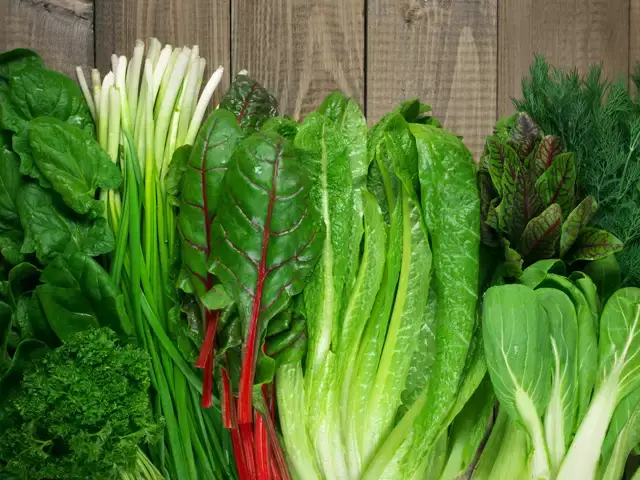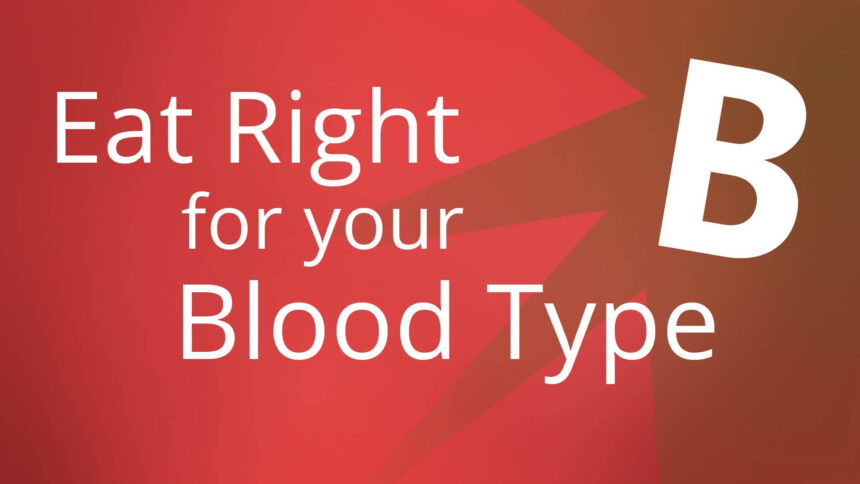Following a blood type B food diet can help individuals optimize their health, improve digestion, and manage weight effectively. The idea of eating according to blood type gained popularity through the work of Dr. Peter D’Adamo, who suggested that different blood types have distinct nutritional needs. For blood type B individuals, this diet emphasizes a balance of proteins, healthy fats, and vegetables, while avoiding specific foods that may interfere with digestion and metabolism.
In this guide, we’ll break down what the diet for blood type B entails, including the most beneficial foods and those that should be avoided. We’ll also provide some tips for following this diet in a way that supports overall wellness.
What is the Blood Type B Food Diet?
The diet for blood type B is based on the premise that each blood type has unique dietary needs that affect health and metabolism. For those with blood type B, the diet encourages a balance of foods from various food groups, including meats, dairy, vegetables, and grains. Unlike other blood types, blood type B individuals are believed to have a more adaptable immune system and digestive tract, making them more tolerant of a wide range of foods. However, some foods can still cause digestive distress or inflammation, so it’s important to follow specific blood type B food guidelines.
Best Foods for Blood Type B
When following a blood type B food diet, it’s important to focus on foods that enhance digestion, stabilize blood sugar, and boost the immune system. Here’s a breakdown of the foods that work best for blood type B individuals:

1. Lean Meats and Proteins
Blood type B individuals benefit from lean meats and poultry. The key proteins to include are:
Lamb and mutton: These are excellent protein sources that are highly digestible for blood type B individuals.
Turkey and rabbit: These lean meats are easily processed by the body and offer a healthy alternative to other meats.
Beef (in moderation): Although blood type B can tolerate beef, it’s best consumed sparingly to avoid excessive fat intake.
2. Dairy Products
Unlike some other blood types, blood type B individuals can generally tolerate dairy products well. Dairy foods offer a good source of calcium and healthy fats. Recommended options include:
Milk: Both full-fat and low-fat milk are suitable, depending on personal preference.
Cheese: Hard cheeses such as cheddar, gouda, and Swiss are good choices.
Yogurt: Unsweetened yogurt, particularly those rich in probiotics, can promote digestive health.
3. Vegetables and Fruits
Vegetables and fruits are essential for maintaining a balanced Diet for blood type B. Some of the best choices include:

Leafy greens: Spinach, kale, and broccoli provide essential vitamins, minerals, and fibre.
Root vegetables: Sweet potatoes, carrots, and beets are rich in antioxidants and help with energy levels.
Fruits: Bananas, pineapples, and grapes are excellent sources of vitamins, minerals, and fibre for blood type B individuals.
4. Grains and Legumes
Blood type B individuals can generally tolerate grains, especially when they are whole and unprocessed. Some of the best options include:
Rice (particularly brown rice): A great source of complex carbohydrates for sustained energy.
Oats and quinoa: Both are nutrient-dense grains that provide fibre and protein without causing digestive issues.
Foods to Avoid on a Blood Type B Food Diet
While the blood type B food diet allows for a wide variety of foods, some should be avoided due to their potential to disrupt digestion or cause inflammation. Here are the key foods that blood type B individuals should limit or eliminate:
1. Chicken
One of the major foods to avoid is chicken, as it contains lectins that can interfere with blood type B’s digestive process. These lectins can cause an inflammatory response, making chicken a poor choice for those with blood type B.
2. Wheat and Corn
Both wheat and corn contain lectins that can disrupt the metabolism and immune system in blood type B individuals. Wheat products like bread and pasta should be limited, and corn should be avoided, especially in processed foods.
3. Tomatoes
Despite being a widely accepted healthy food, tomatoes are problematic for blood type B individuals due to their lectin content, which can interfere with digestion and lead to inflammation. It’s advisable to minimize or avoid tomatoes in your diet.
4. Processed Foods
Highly processed foods, particularly those that are high in sugar or artificial additives, should be avoided. These foods can upset metabolism and lead to weight gain, digestive issues, and energy imbalances. Focusing on fresh, whole foods is the key to following a successful Diet for blood type B.
Key Guidelines for Following the Blood Type B Food Diet
To make the most of a Diet for blood type B, it’s important to follow some basic guidelines to ensure that the foods you eat are supporting your body’s needs effectively. Here are a few tips for success:
1. Balance Your Meals
Unlike blood type O, which requires a higher-protein, low-carb diet, blood type B individuals should focus on balancing proteins, carbohydrates, and fats. Each meal should include lean proteins like turkey or lamb, a variety of vegetables, and a source of whole grains or legumes to keep your energy stable throughout the day.
2. Choose Fresh, Whole Foods
To get the most out of your Blood type B nutrition, opt for fresh, unprocessed foods as much as possible. Whole vegetables, fruits, and grains are packed with essential nutrients that are vital for overall health.
3. Avoid Overeating Processed Grains
While blood type B can tolerate grains like rice and quinoa, it’s important not to overconsume processed grains, such as white bread and pasta, which can lead to blood sugar imbalances. Stick to whole grains for better digestion and sustained energy.
4. Stay Hydrated
Proper hydration is essential for maintaining healthy digestion and supporting overall well-being. Drink plenty of water throughout the day and consider herbal teas like peppermint or ginger, which can help soothe the digestive system.
Benefits of the Diet for blood type B
By following a Blood type B nutrition, individuals can experience several health benefits, such as:
Improved Digestion: By avoiding foods like chicken and tomatoes, blood type B individuals may experience fewer digestive issues, including bloating and discomfort.
Increased Energy: A well-balanced diet that includes lean proteins, vegetables, and whole grains can help stabilize energy levels and prevent fatigue.
Stronger Immune System: Including probiotic-rich dairy and nutrient-dense vegetables can help boost immunity and reduce the risk of illness.
Conclusion
The blood type B food diet offers a flexible and balanced approach to eating that aligns with the unique nutritional needs of individuals with blood type B. By focusing on lean proteins, dairy, vegetables, and fruits while avoiding chicken, wheat, and corn, blood type B individuals can enjoy improved digestion, better energy, and enhanced overall health.
Always remember that while this diet provides guidelines based on blood type, it’s important to listen to your body and make adjustments as needed. If you’re considering significant changes to your diet, it’s a good idea to consult with a healthcare provider or nutritionist to ensure you’re meeting all of your nutritional needs.
Also read: Understanding Foodborne Diseases


